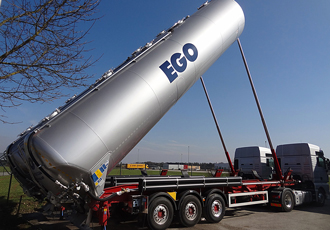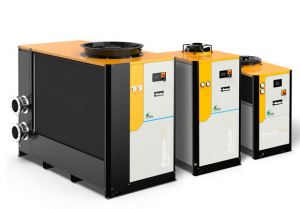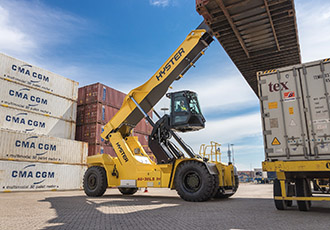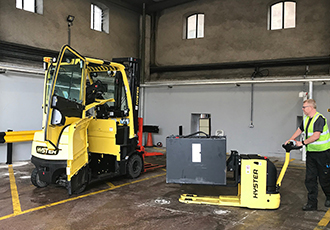Can we learn from disc brakes on tanker trailers?

The adoption of disc brake technology for articulated trailers has been slower in the UK than the rest of Europe. With no regulations making them a requirement, many operators feel that the additional purchase and maintenance costs outweigh the potential performance gains. However, the tanker industry typically specifies disc brakes as standard. JOST examines the benefits of disc brakes and asks if other sectors of the haulage industry can learn from tanker operators.
Car drivers of a certain age will remember the first time they experienced disc brakes rather than the drum brakes they were used to. The difference in performance would have been stark; disc brakes are better than drum brakes for slowing and stopping a moving vehicle and far less prone to fade. The stopping power of disc brakes is more reliable because the design means that the brake pads are only in contact with a part of the disc at any given time. This means that the disc has the chance to cool down as it rotates out of the pads.
Other performance benefits of disc brakes include their ‘self-adjusting’ capability; as the pad wears an even surface remains so the pressure of the pad against the disc is constant. The design also delivers greater ‘feel’ to the driver, making it easier for them to modulate their performance and drive more smoothly and efficiently.
Despite the clear performance advantages, drum brakes are still very much the norm for new trailers being built in the UK. This is ultimately driven by the issues of cost. Firstly, disc brake systems will be more expensive to specify on a trailer than simple drum brakes. Secondly, once installed, the cost of maintenance will increase as mechanics will require new tooling to carry out maintenance and service operations. Many operators in the UK haulage industry look at these costs and feel that the best business decision for them is to remain with their traditional braking systems. Notably, however, the tanker industry has been specifying disc brake technology as standard since it was introduced. By looking at the ways in which operators of these vehicles off-set the perceived costs, JOST UK hopes to encourage other sectors of the industry to switch to the superior – and safer – performance of disc brakes.
A key difference between tanker trailers which are specialised for a specific application and the curtain-siders and flat-beds of general haulage operations is frequency of use. In tanker applications a single tractor and trailer unit will typically be coupled permanently, meaning that the trailers are rarely left parked for long periods of time. With the brakes being subjected to frequent use it’s important that they are able to offer reliable performance. Because disc brakes provide consistent braking pressure throughout the wear life of the pads they are more suited to daily use. Operators of bulk handling trailers, especially tipper units, that require a PTO drive and hydraulic system on the tractor unit will also typically pair tractors and trailers in a similar way – meaning that the brakes will be in action most days.
JOST UK is able to directly support any operator that feels the investment in tooling for maintenance and servicing would price them out of the market for disc brakes. The haulage industry is increasingly competitive and margins are small, so it’s perfectly understandable for businesses to shy away from committing to expenses they feel can be easily avoided. This is why JOST UK will supply the specialised tooling required for maintenance when a disc brake system is ordered. Equally, spare parts are available from stock to ensure quick delivery to make sure trailers can be back out on the road quickly.
Finally, it’s important to address the perceived cost disadvantage of disc brakes compared to drum brakes. While the initial purchase cost may well be higher, there is no doubt that you get what you pay for. The system will be offer greater performance efficiency, last longer and be more reliable, meaning the Total Cost of Ownership is often lower in the long run.
The tipping point for the adoption of disc brakes in the automotive industry occurred several decades ago when consumers began to demand increased performance and safety. The haulage industry is a long way behind, though in the Europe it has been expedited by greater focus on safety legislation. The fact is that the improved performance of disc brakes means that they are the safer option.
JOST UK is encouraging all operations to consider their options when specifying their newest trailers, by challenging the conventions of the industry and specifying a new technology it may be that they can keep their business ahead of the curve.
Similar articles
More from Jost UK Limited
- What does the future look like for self-driving trucks? 17th June 2020
- Big order for hydraulic tipper systems 9th October 2019
- MAN tipper trucks warranty includes EDBRO hydraulics 16th August 2019
- JOST’s double display ensured Tip-Ex success 15th August 2019




.jpg)







Write a comment
No comments